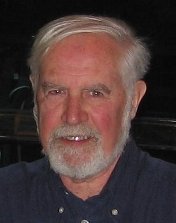
“Being on Council does take up some time” admits Nick Rogers. “As with all things, the more you put in the more you get out of it, and the more enjoyable and rewarding the activity becomes”. Lynne Frostick agrees: “Being President does take up a lot of time - more so than almost any other role. However it is very rewarding – I wouldn’t have missed it for anything”.
“Any Earth scientist who gains benefit from membership of the Society should be prepared to consider seriously any approach that he or she should stand for Council” says Edward Derbyshire. “There must be commitment and belief, relevant experience and, above all, a feeling for the role of the Society in nurturing the advancement of Earth science”.
Malcolm Brown agrees that Council membership is a way to contribute to both the Society and the science itself. “After more than thirty years working as a geologist, I felt I should “give something back” rather than assume other people would be doing it for me.”
For those voting for Council members, as well as considering standing themselves, the decision is important. Whether making choices about strategy, external relations or educational policy, members are representing the views of the Earth science community as a whole, and contributing to discussions that will affect the future of Earth science in the UK.
“With the environmental challenges that face us, Earth science training in thinking across time and space and the ability to observe and synthesise data across all sciences has never been more important” says Lynne Frostick. “My advice is - always think about doing what is best for our science and the next generation of geologists.”
For the group of scientists who first met two hundred years ago and declared their ‘main object, that of discovering the geological structure of the Globe’, these words would not sound unfamiliar.